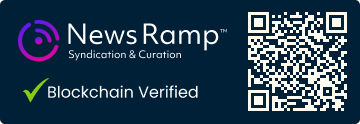Curated News
By: NewsRamp Editorial Staff
November 20, 2025
Frequency Holdings Shifts ReachOut to High-Margin SaaS Cybersecurity Model
TLDR
- Frequency Holdings' ReachOut subsidiary shifts to SaaS licensing to gain higher margins and predictable recurring revenue while positioning for scalable market expansion.
- ReachOut transitions from labor-intensive MSP services to automated SaaS licensing with AI cybersecurity, compliance tools, and predictive support for consistent delivery.
- This SaaS model democratizes advanced cybersecurity protection for small businesses, making enterprise-grade security accessible and affordable for broader economic security.
- ReachOut replaces traditional IT services with AI-powered cybersecurity licensing, transforming how businesses access protection through automated, productized solutions.
Impact - Why it Matters
This strategic transformation represents a fundamental shift in how cybersecurity services are delivered to small and medium businesses, potentially reshaping the entire managed services industry. For SMBs, this means access to enterprise-grade cybersecurity protection at more affordable prices without the operational complexity of traditional MSP relationships. The move toward automated, productized services could significantly reduce cybersecurity costs while improving protection quality for businesses that have historically been underserved in the cybersecurity market. As cyber threats continue to escalate against SMBs, this democratization of advanced protection capabilities could help close the security gap that has left many smaller businesses vulnerable to devastating cyber attacks. The transition also signals broader industry trends toward automation and subscription-based models that could influence how technology services are priced and delivered across multiple sectors.
Summary
Frequency Holdings Inc. (OTC: FRQN), a publicly traded technology holding company, has announced a transformative strategic shift for its wholly owned subsidiary ReachOut Digital Intelligence. The company is moving away from the traditional managed services provider (MSP) model toward a high-margin SaaS-driven licensing framework designed to improve recurring revenue predictability and long-term gross margins. This transition represents a significant step in ReachOut's broader 2026 strategic roadmap, positioning the company as a cybersecurity-first provider focused on AI automation, cybersecurity protection licensing, and AI-enabled compliance readiness rather than the legacy labor-driven approach that has dominated the industry for over a decade.
Under the new model, ReachOut is implementing a suite of proprietary and third-party technology tools under a monthly licensing structure that includes AI-powered cybersecurity protection, automated compliance readiness tooling for standards like CMMC, HIPAA, and NIST, AI-enabled business intelligence and automation modules, endpoint and cloud security platforms, and predictive support automation. CEO Rick Jordan, who has a longstanding mission of "Cybersecurity for All," emphasized that "the MSP model is fundamentally broken" and that labor-heavy service delivery has reached scalability limits. The shift to a SaaS licensing subscription model, backed by human support, aligns the business with the future of the industry where revenue quality, automation, and protection are the true value drivers. This approach democratizes protection, enabling small and medium businesses (SMBs) to adopt modern cyber defense capabilities without hiring large teams or deploying complex infrastructure.
The strategic transformation positions ReachOut to operate with significantly reduced direct labor load, higher gross margins from recurring monthly licensing, less operational variability, and more predictable revenue cycles with higher lifetime values. As ReachOut evaluates future MSP acquisitions, it plans to leverage its technology stack as a force multiplier by injecting the SaaS licensing model directly into each acquired company, potentially expanding revenue bases by 2-5X within 24 months post-acquisition. The company maintains that while the model shifts toward automation and SaaS licensing, it preserves a critical layer of human-backed support to ensure enterprise-grade reliability for SMB clients. This hybrid approach ensures that SMBs receive protection historically reserved for large enterprises without the cost burden of traditional MSP relationships. For more information, visit www.newmediawire.com and frequencyhold.com.
Source Statement
This curated news summary relied on content disributed by NewMediaWire. Read the original source here, Frequency Holdings Shifts ReachOut to High-Margin SaaS Cybersecurity Model
